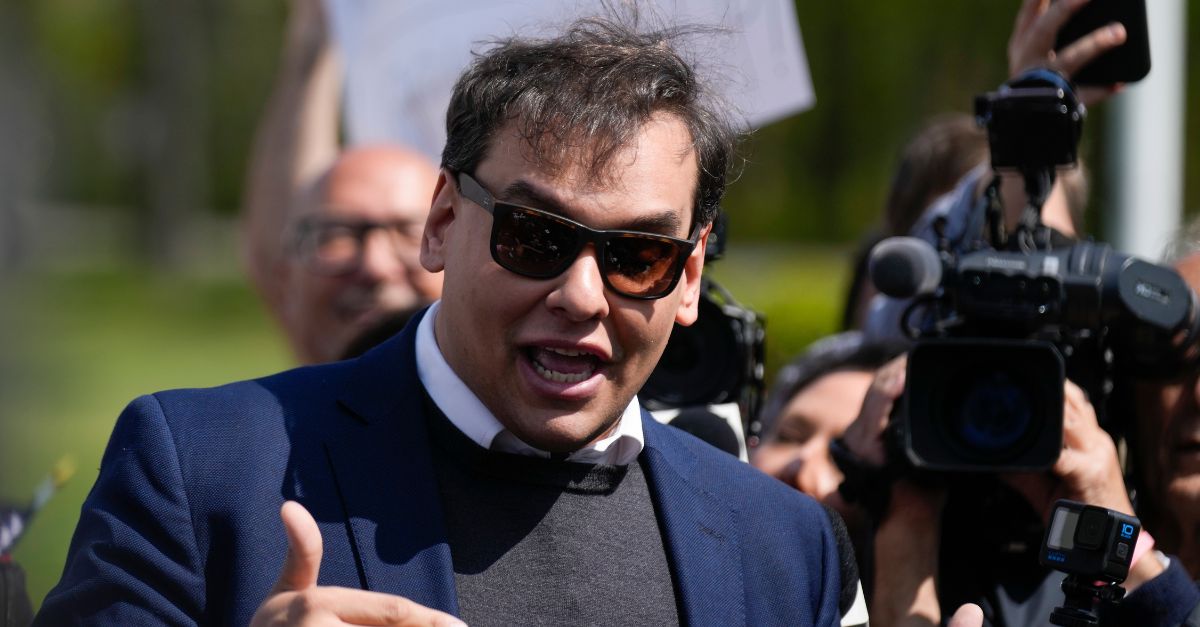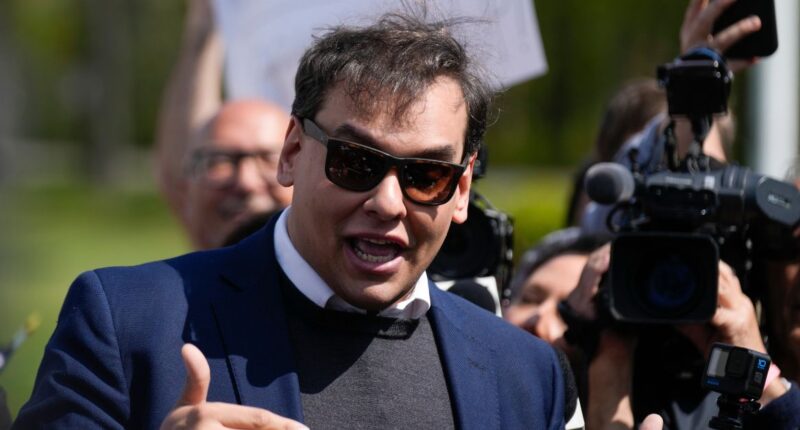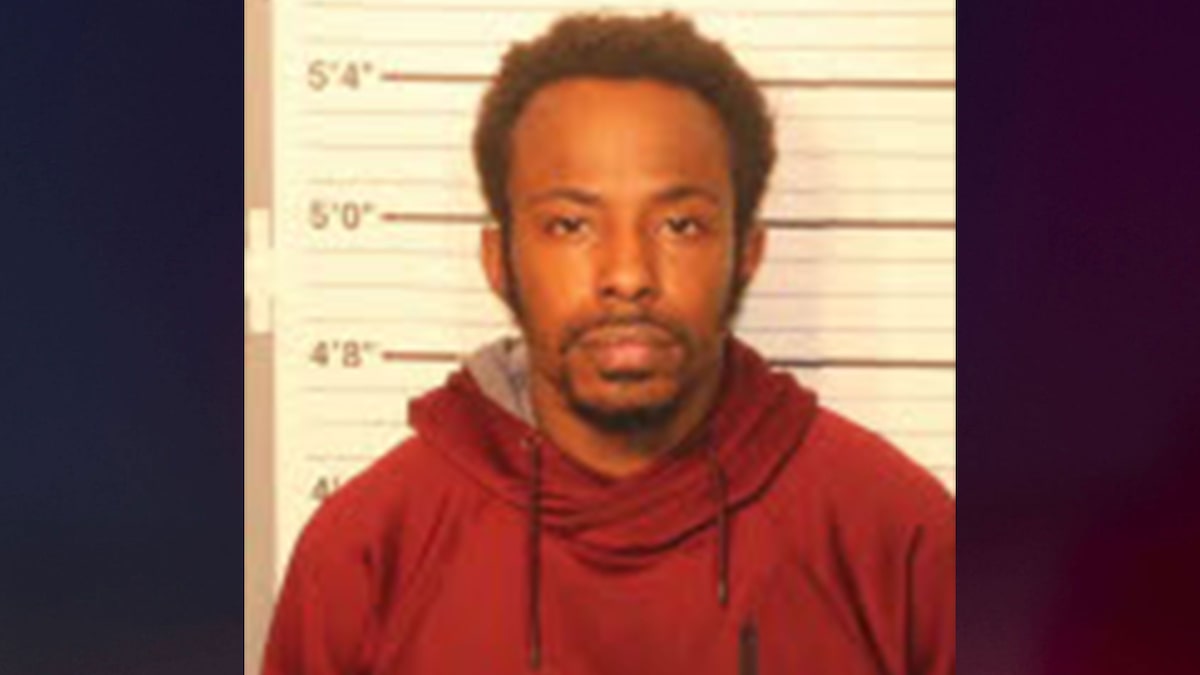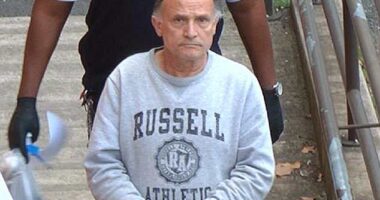
U.S. Rep. Santos speaks to reporters as he leaves the federal courthouse in Central Islip, N.Y., Wednesday, May 10, 2023. A 13-count federal indictment unsealed in New York accuses Santos of embezzling money from his campaign, falsely receiving unemployment funds and lying to Congress about his finances. (AP Photo/Seth Wenig)
Beleaguered accused fraudster Rep. George Santos has asked a federal judge to reverse an order that would reveal the names of the people who posted his bond, citing safety concerns and reassuring the judge that the guarantors do not come with any political strings attached.
Santos, a Republican representing a particularly wealthy district of New York’s Long Island who took office at the beginning of 2023, was arrested in May and indicted on 13 counts including fraud, money laundering, and theft of public funds. He was released after posting $500,000 bond, with the help of at least two suretors. On June 2, U.S. Magistrate Judge Anne Y. Shields granted a motion from media organizations to unseal documents that would reveal who put up Santos’ bond, after Santos said he would sooner go to jail than identify the bond co-signors. She didn’t unseal the names at the time, giving Santos until Friday to appeal.
Santos, through his lawyer Joseph Murray, argues that Shields misapplied the legal standard in her analysis. As Murray notes in his letter to U.S. District Judge Joanna Seybert, Shields — in a ruling that has remained under seal — made three findings that led to her conclusion that the documents should be unsealed: the documents are judicial in nature, they are the type of documents that carry a “presumption of access,” and the presumption of access carried “substantial weight.”
Murray agreed with Shields’ first two findings but argued that the presumption of access should carry significantly less weight than what the magistrate judge had decided because the privacy interests of the guarantors in Santos’ case are more important than the public’s right to know who they are.
Murray suggested that Shields had either misread — or didn’t read at all — a portion of an exhibit submitted by Santos to a House Ethics Committee indicating that at least two exceptions to rules requiring disclosures applied: that the bond guarantee qualifies as a “favor” or “other item having monetary value, and therefore exempt from disclosure, and that when such gifts come from a relative or relatives, their identities do not need to be revealed.”
“Defendant has essentially publicly revealed that the suretors are family members and not lobbyists, donors or others seeking to exert influence over the Defendant,” Murray wrote. He added that Santos would “have no objection” to releasing an unredacted portion of the sealed judicial bond records or proceedings “to reveal the existence of a ‘family’ relationship between Defendant and suretors without identifying the name or type of family member.”
Murray also wrote that Shields “failed to perceive the importance of the privacy issues of these suretors” in light of the “media frenzy and hateful attacks” that Santos, his staff, and Murray himself have faced.
“These attacks have been extremely angry, anti-gay, anti-Republican and all around antisocial,” Murray wrote. “It is reasonable to conclude that if Defendant’s suretors are identified, that the attacks and harassment will commence against them too.”
Murray implied that the guarantors could be subject to “political violence,” and that their privacy should be given additional consideration “considering their ages and respective employment.”
In his letter, Santos’ lawyer tells Seybert, a Bill Clinton appointee, that a third potential guarantor had a “change of heart” and opted not to post bond after the “media frenzy” that followed CNN’s reporting on the then-pending indictment. Shields, Murray argued, should have considered the potential of a similar impact on Santos’ two remaining suretors.
“There is great concern for the health, safety, and well-being of our two suretors, which sadly, was not shared by Judge Shields, at least as a factor of their privacy concerns,” Murray wrote.
Murray also cites the Eighth Amendment protections against “excessive bail,” arguing that if Santos’ suretors get spooked and withdraw the funds, Santos “may be subject to more onerous conditions of release or may be subject to pretrial detention.”
Following a New York Times investigation, Santos had been accused of lying about everything from his religion to his charitable efforts to his claims that his mother was in the South Tower of the World Trade Center during the Sept. 11, 2001, terrorist attack.
You can read the letter from Murray, Santos’ lawyer, below.
Have a tip we should know? [email protected]









